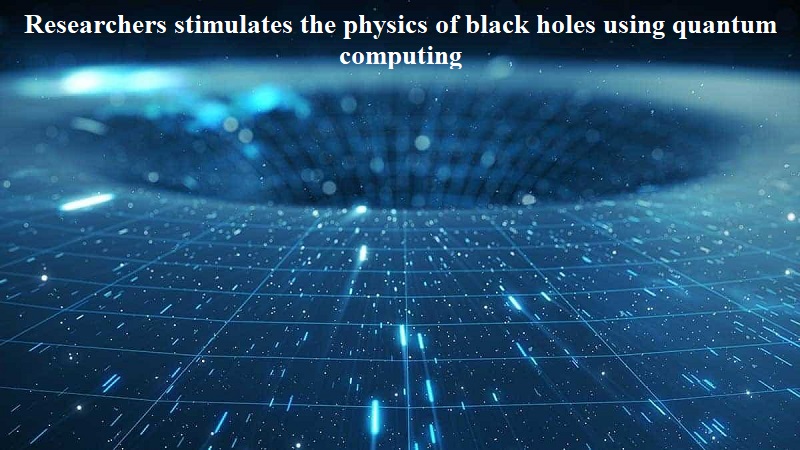
A team of Chinese scientists, through quantum computing, has successfully simulated the physics of black holes. Their aim was to create systems with properties similar to black holes and test the hypothesis of renowned physicist Stephen Hawking. The findings of their study were published in the peer-reviewed journal Nature Communications.
The researchers, affiliated with the Chinese Academy of Sciences, Tianjin University, the Beijing Academy of Quantum Information Sciences, and the RIKEN Cluster for Pioneering Research in Japan, used superconducting quantum chips to simulate the quantum effects of black holes. Their experimental setup consisted of a superconducting processor comprising a chain of 10 qubits with interaction couplings controlled by nine tunable couplers.
According to the Institute of Theoretical Physics of the Chinese Academy of Sciences, the results showed that there was always a certain probability for the quasiparticle inside the analog black hole to radiate through the event horizon, exhibiting properties similar to Hawking radiation. The researchers stated that their study opens the door to uncovering deeper secrets about black holes and enables further investigations into related problems.
Hawking radiation, proposed by the British theoretical physicist Stephen Hawking, suggests that particle pairs spontaneously come into existence near the event horizon of a black hole. While one particle falls into the black hole, the other escapes, leading to the emission of radiation known as Hawking radiation.
Black holes are primarily formed when massive stars reach the end of their lives. Stars larger than our sun eventually become super-dense neutron stars or stellar-mass black holes. In 2019, scientists captured the first-ever image of a black hole located at the center of the galaxy M87, situated 53 million light-years away from Earth. Recently, researchers used artificial intelligence (AI) to enhance the image, providing a sharper resolution with a narrower ring around the black hole and a darker center.

Post Your Comments